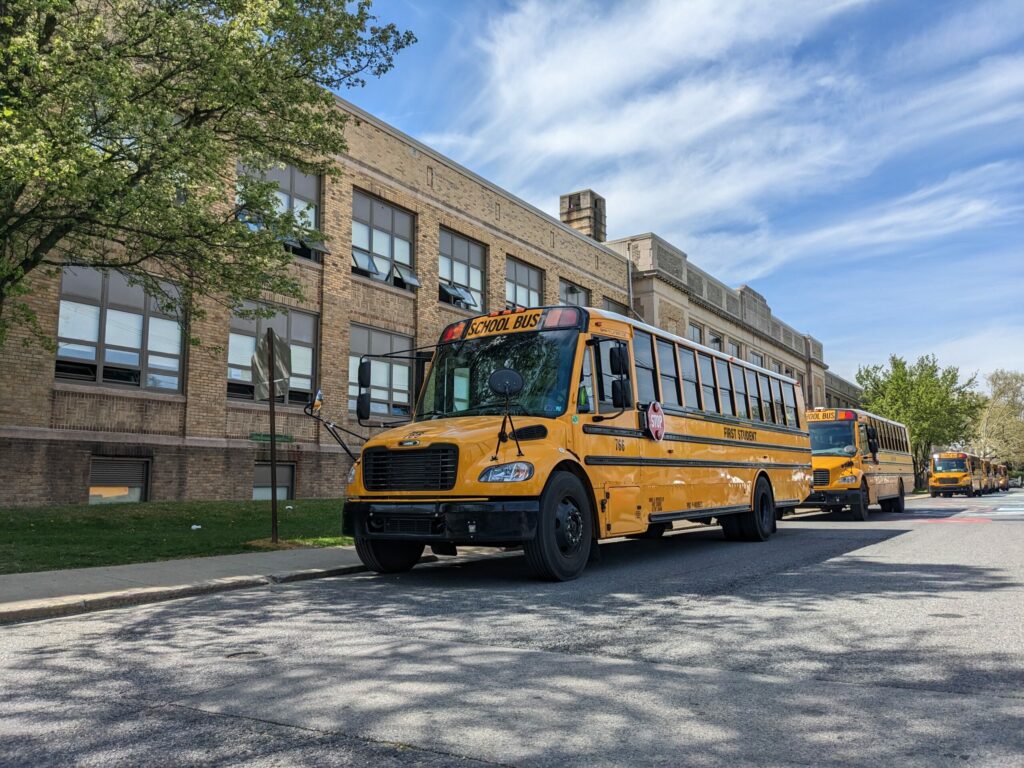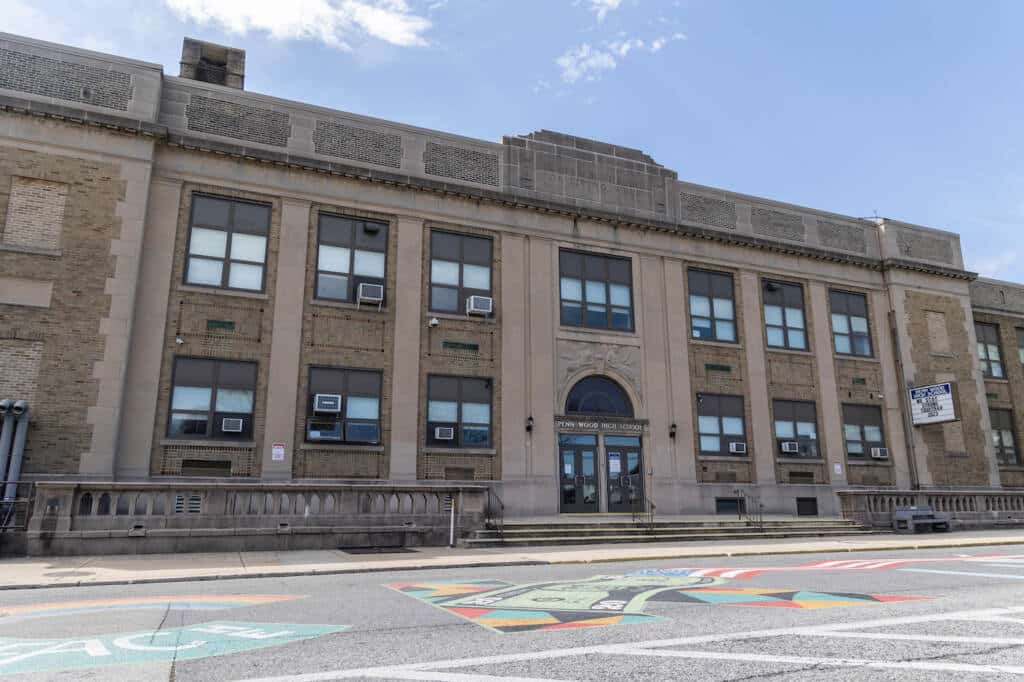The William Penn School District received $7.2 million from the federal Renewing America’s Schools Grant program fund a high-efficiency upgrade of Penn Wood High School | Photo Credit: Kimberly Paynter/WHYY
The William Penn School District (WPSD) is a small school district in Delaware County, Pennsylvania, that struggles with chronic underfunding. Having to rely upon local property tax revenue for nearly half of its annual budget creates a significant shortfall for a district located in a high-poverty community. A study by the Public Interest Law Center found that WPSD would need approximately $34 million more in funding per year in order to provide an adequately funded education for its 5,000 students.
In search of a durable solution to its financial hardships, William Penn School District sought a bigger contribution from the state. WPSD spearheaded a landmark lawsuit against the state of Pennsylvania that challenged the constitutionality of the state’s school funding formula. In 2023, the Commonwealth Court ruled in favor of William Penn School District and the other plaintiffs and ordered Pennsylvania lawmakers to find a more equitable way to allocate state funding to schools that closes the spending gap between wealthy and poor communities.
In the same year as the court decision, WPSD also scored a win in federal funding. In 2023, the under-resourced district was selected to receive a total of $17+ million in competitive nationwide grants funded by the Bipartisan Infrastructure Law (also known as the Infrastructure Investment and Jobs Act).
Renewing an old school with a goal of 100% electrification
WPSD was awarded a $7.2 million grant from the U.S. Department of Energy’s Renew America’s Schools program for energy improvements at Penn Wood High School, a 1947 building that has required updates and maintenance that were deferred due to lack of adequate capital funds. The grant will support high-efficiency upgrades and clean energy installations, including state-of-the-art ambient heat pumps, high-efficiency LED lighting, a Building Automation System (BAS), and solar-ready roofing that will reduce reliance on fossil fuels and prepare this school for net zero energy operations. The project at Penn Wood High School aims to reduce operating costs, decrease the district’s carbon footprint, and create opportunities for STEM and renewable energy education. The upgrades funded by the Renew America’s Schools Grant are expected to generate substantial cost savings for WPSD, which will be reinvested in educational programs and further facility improvements.
“Our students and staff deserve to learn and work in modernized, comfortable, and healthy spaces that help them be their best at school. We are transforming one of our oldest schools into an efficient, electrified building that will save the district money and will be used to teach about sustainability and other STEAM concepts,” said Dr. Eric J. Becoats, Superintendent of William Penn School District. “The federal grant we received from the U.S. Department of Energy is making possible a needed renovation that will have lasting benefits to our school community for years to come.”
Dr. Eric Becoats, Superintendent of WPSD and School Leadership in Clean Energy (SLICE) network member, played a pivotal role in securing federal funds by crafting a strategic plan that prioritized infrastructure improvements and sustainability. Dr. Becoats emphasized the importance of collaboration and using data-driven insights to advocate for change and rally support from the school board and community. The WPSD team actively engages with the community to build support for their initiatives, fostering a sense of shared responsibility and pride in the district’s progress. This approach has helped the District rally the necessary resources and backing to make meaningful change. Under his leadership, WPSD partnered with Practical Energy Solutions and KCBA Architects to develop a comprehensive proposal that earned the district its selection as one of only 25 nationwide awardees in 2023.

Charging ahead with transportation electrification
The underfunded district remained committed to pursuing new funding opportunities and exploring innovative ways to enhance its educational environment. Bus operator First Student partnered with WPSD and a few other school districts to apply for a large grant from the EPA’s Clean School Bus Program. On behalf of its school district customers, First Student was awarded nearly $40 million for 100 electric school buses. From this award, WPSD will receive 25 electric school buses and the associated chargers, valued at approximately $10 million. These new quiet, zero emission buses will replace 25 aging, polluting diesel buses and protect the health of the students and bus drivers from emissions that can trigger asthma and cause other health concerns. Once installed, the electric school buses will reduce fuel costs and save on fleet maintenance and repairs.
Through its persistence and dedication to serving its students, William Penn School District found innovative new ways to bring in needed state and federal dollars. The significant federal grants it won enabled building renovations and transportation modernizations that it otherwise could not afford. As these projects get implemented, they will also create operational savings that the district can invest back into its students.
William Penn School District is showing how vision, leadership, strategic partnerships and community engagement are essential to overcoming financial challenges and creating a brighter future for its students.















